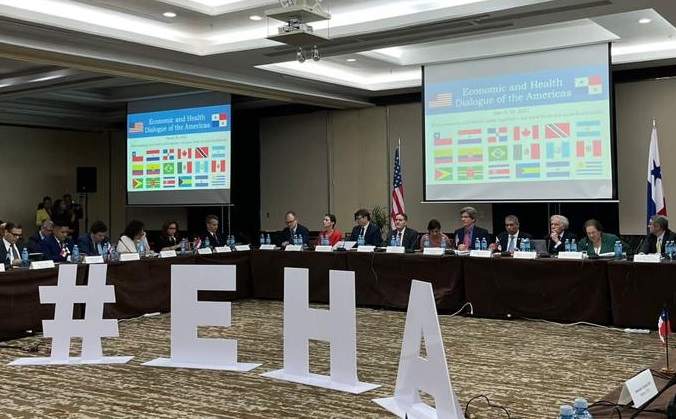
| AOSIS STATEMENT ON LATEST IPCC CLIMATE SCIENCE REPORT Global Inertia on Climate Change Is Creating Severe Gap for SIDS Development |
| The Synthesis of the IPCC’s Sixth Assessment Cycle confirms life-threatening risks to small island developing States, and challenges to sustainable development, if warming is not limited to 1.5°C. |
| 20th March 2023The International Panel on Climate Change (IPCC), the world’s foremost climate science body convened by the United Nations, has released the Synthesis Report of its 6th Assessment Cycle in which it reveals a rapidly closing window for a sustainable future particularly for vulnerable small island developing States (SIDS). Assessments found that beyond a global warming threshold of 1.5°C, islands will have significantly increased difficulty adapting to climate change impacts. |
| With limits to adaptation, vulnerable populations will be at risk of more acute “losses and damages” due to more severe and frequent extreme climate-driven events, and slow onset events such as sea level rise, water availability, fisheries yield, agricultural production, disease spread, and economic damages. For SIDS, the strain of coping with the impacts of climate change reduces the availability of financial resources and impedes national economic growth. |
| “These findings reaffirm, as AOSIS has continuously stated, that keeping 1.5 alive is imperative to the sustainable development of small islands – our citizens who suffer the most from a crisis we did not cause,” stated AOSIS Chair, Ambassador Fatumanava-o-Upolu III Dr. Pa’olelei Luteru. “The women, men, and children of the Pacific and Caribbean islands are disproportionately affected by climate change. SIDS have much lower per capita emissions at 4.6 tCO2e than the global average (6.9 tCO2e). Between 2010 and 2020, deaths from floods, droughts and storms were 15 times higher in highly vulnerable regions. Our people, our economies, our hopes for a better future are being constantly assailed by the actions of the big emitters.” |
| “While our people are being displaced from their homes and climate commitments go unmet, the fossil fuel industry is enjoying billions in profits. There can be no excuses for this continued lack of action. It was an arduous road to finally achieve an international agreement on establishment of a loss and damage fund – the operationalization of which is still being negotiated – yet this finance is necessitated due to inertia on mitigation. AOSIS is calling on the international community to close the gap and make concerted progress on the work programme for urgently scaling up mitigation ambition and implementation. |
| The scientific evidence must be an exigent wake-up call for the international community. The forecasted challenges can certainly be avoided. Failure to act is an agreement to consign the people of small island developing states to a dismal future that we do not deserve, one that will have dire ramifications for us all.” |




